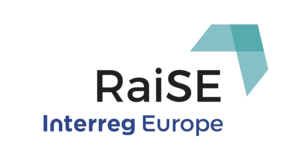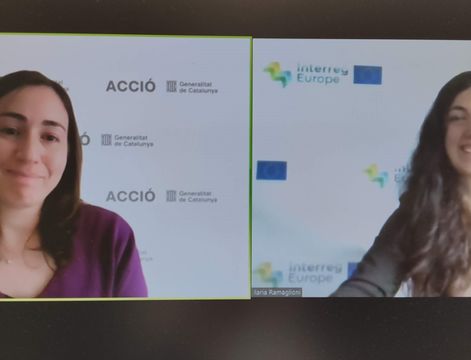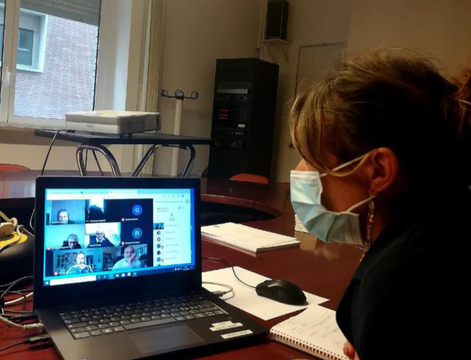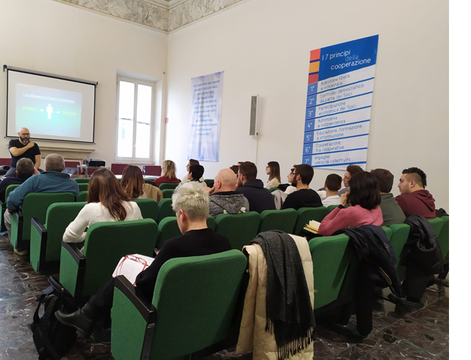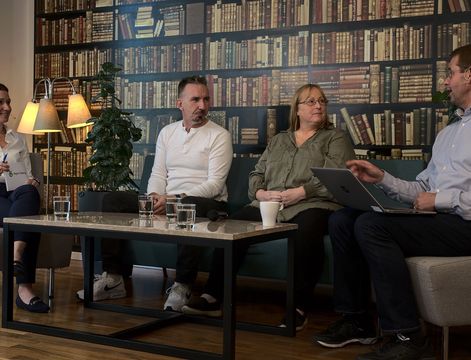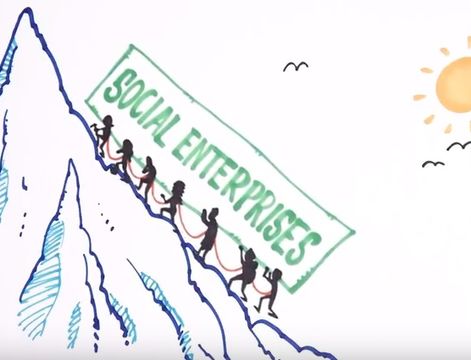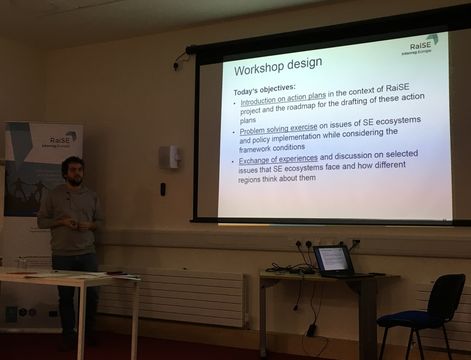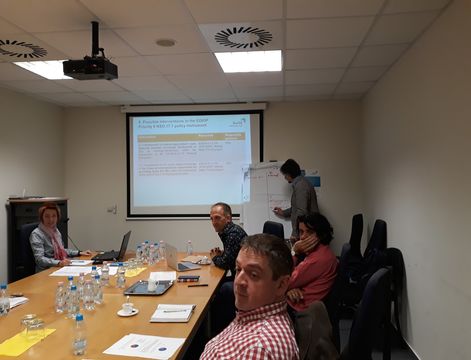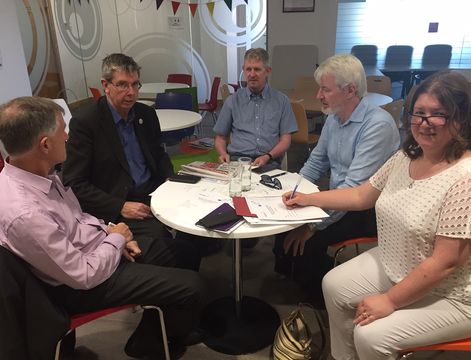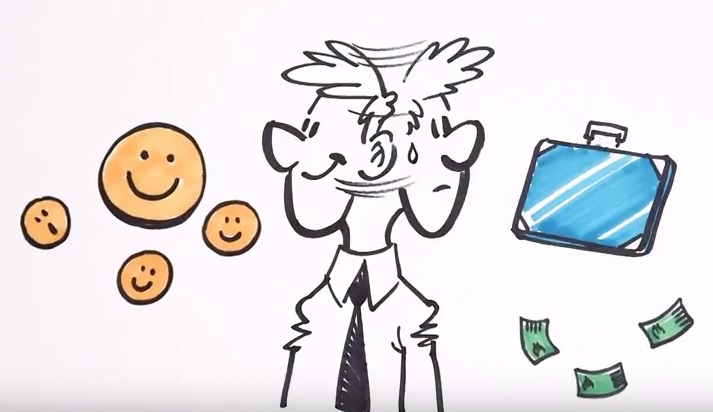RaiSE attends Social Innovation Drive Conference in Brussels
Anders Bro, Janni Bohman and Mikael Norberg, from Region Örebro County, were present at the conference "Social Innovation: Driving Force of Social Change" in Brussels on 24 & 25 October 2017.
The first day of the conference primarily focused on research findings on how social innovations can be a driving force for social change
Antonius Schröder welcomed the attendees and introduced the agenda along with the keynote speakers, Jürgen Howaldt from Dortmund Univerisy and Frances Westley from Waterloo Institute for Social Innovation and Resilience.
Jürgen Howaldt presented the results from the SI-Drive project. The mission of the project was to extend the knowledge about social innovation as a driver of social change and focused on three areas:
- Integrating theories and research methodologies to advance understanding of social innovation leading to a comprehensive new paradigm of innovation.
- Undertaking European and global mapping of social innovation, thereby addressing different social, economic, cultural, historical and religious contexts in eight major world regions. The mapping included 1005 cases from all over the world.
- Ensuring relevance for policy makers and practitioners through in-depth analyses and case studies in seven policy fields, with cross European and world region comparisons, foresight and policy round tables.
Frances Westley’s presentation: Social innovation and resilience: the evolution of social innovation over time, gave us a historical context of social innovation, and how these examples show us what to look for in transformative social innovations.
For the afternoon sessions Kriss Deiglmeier from TIDES talked about strategies for scaling social innovation. The talk included an overview of the innovation process, traditional start-up financing and emerging finance solutions both in the US and global.
Julia Wittmayer from DRIFT, Erasmus University of Rotterdam, presented insights from the TRANSIT project. The project aimed to develop a theory of transformative social innovation that is grounded and tested in empirical data and useful to policy makers, activists, entrepreneurs, critical intellectuals and researchers.
Nadia Von Jacobi, SBS, University of Oxford presented research on creating economic space for social innovation. The research resulted in 12 policy recommendations:
- Adopt a long-run perspective
- Invest in the capability to associate
- Improve network support
- Compensate disempowering arrangements at the national level
- Support the plurality of actors
- Review conditionalities of funding
- Do not "pick the winners" but provide horizontal support
- Harvest from the past
- Improve social innovation data collection
- Fiscal policies for social innovation
- Improve legislation in specific areas
- Widen intellectual space for social innovation
Day 2 of the conference centered around a plenary session on social innovation policy.
Steven Dhondt from TNO/KUL presented the SI-Drive project findings on the importance of social innovation policies, criteria of impact, case studies and barriers for upscaling.
Stefan Kuhlmann from the University of Twente talked about Transformative innovation policy addressing grand challenges. He stressed the importance of not implementing a “one-fits-all” approach and instead go for policy mixes drawing on classical priority setting an implementation approach, demand-side and procurement policies as well as system transformation efforts. Mr. Kuhlmann also talked about the importance of creating spaces for social experimentation and facilitation for inclusion of new actors. The grand societal challenges identified in Horizon 2020 are:
- Health, demographic change and wellbeing
- Food security, sustainable agriculture and forestry, marine and maritime and inland water research, and the Bioeconomy
- Secure, clean and efficient energy
- Smart, green and integrated transport
- Climate action, environment, resource efficiency and raw materials
- Europe in a changing world - inclusive, innovative and reflective societies
- Secure societies - protecting freedom and security of Europe and its citizens
Raúl Zambrano presented Social innovation and the Sustainable Development Goals: Connecting the dots. Raúl talked about access to information and communication technology, the importance of participation in decision-making and the different levels of participation that can be adopted.
